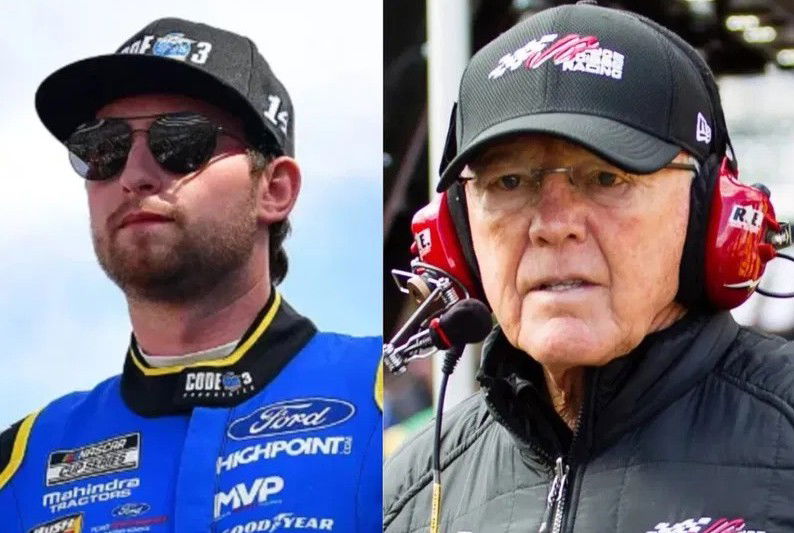

Chase Briscoe stormed through Darlington’s Cook Out Southern 500, leading 309 laps to claim his second Cup Series win of 2025 and lock himself into the Round of 12. That victory came after his first at Pocono’s Great American Getaway 400 in June, boosting Joe Gibbs Racing’s tally to six for the season. With teammates like Denny Hamlin and Christopher Bell setting a relentless pace, Briscoe’s 13 top 10s this year keep him in the mix, but the spotlight adds layers of scrutiny. But in the shadow of Joe Gibbs’ towering expectations, Briscoe himself admits the journey isn’t without its struggles.
Watch What’s Trending Now!
High standards at JGR mean every run counts, and Briscoe’s Darlington dominance showed what happens when execution clicks. Yet the team’s bar, raised by Hamlin’s four wins and Bell’s consistent speed, can turn solid efforts into pressure cookers for newcomers like Briscoe. Sitting first in the standings, he’s proving his fit, but peaks bring their own tests. Despite the Darlington masterclass, what holds Briscoe back in his eyes?
ADVERTISEMENT
Chase Briscoe’s post-race reflections on his shortcomings
In a post-race interview after his commanding Darlington win, Chase Briscoe opened up about falling short of Joe Gibbs Racing’s lofty benchmarks, even as he hit a career high. “Yeah, I mean, the expectation was to go in, you contend for wins, and hopefully battle for a championship,” Briscoe said, laying out the immediate pressure he felt joining a team with 204 all-time Cup victories.
This admission ties back to his transition from Stewart-Haas Racing, where he scored just one win in 2024, to JGR‘s powerhouse lineup in 2025, a move that demanded quick adaptation to Toyota’s setup and crew dynamics under crew chief James Small. Briscoe pinpointed the adjustment period as tougher than expected, noting, “I would say it definitely was harder than I anticipated at the first, I don’t call it 10 weeks.”
That early stretch saw him post five top 10s but no victories until Pocono, a grind that tested his resolve amid Bell’s three-race win streak in spring. His honesty highlights how JGR’s culture, built on legends like Tony Stewart‘s 49 wins for the team, pushes drivers to self-assess harshly, turning even a 13-top-10 season into a call for more.
ADVERTISEMENT
His peak form at Darlington, where he swept both stages, still prompted reflection on gaps. “And I think, too, just I say the JGR team was off, right? But Bell was able to go win three in a row there, and I was just starting to learn so much about ourselves, and I was learning where race cars and just how different they drove,” Briscoe explained, underscoring the internal benchmark set by teammates.
This mindset stems from his Xfinity days, where he nabbed nine wins in 2020 for Stewart-Haas, yet Cup-level scrutiny at JGR amplifies every misstep, making his admissions a nod to growth in a championship-caliber environment.
ADVERTISEMENT
While Briscoe’s self-critique reveals the mental side of racing at JGR, his on-track command at Darlington signaled a fierce start to the playoffs. That edge didn’t go unnoticed by rivals, setting a tone for what’s ahead.
Top Stories
Tony Stewart’s Long-Awaited NASCAR Return Backfires as Daytona Entry Draws Harsh Reality Check
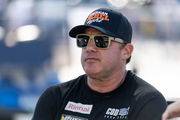
Noah Gragson Loses Out on Billion Dollar Partner to Joe Gibbs Weeks Before 2026 Season
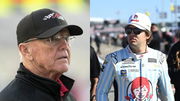
Kenny Wallace’s Daughter Exposes the Emotional Fallout of Dale Earnhardt’s Death That Still Haunts Her
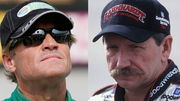
Ex-FOX Broadcaster Comes Out in Support Amidst Mounting Calls Against Christopher Bell’s Dirt Career
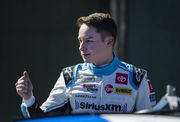
66-YO NASCAR Veteran Asked to Stay Away From Daytona 500 After Failing in 2025

The playoff tone set by Briscoe’s command
Chase Briscoe’s Darlington romp didn’t just punch his ticket forward; it cranked up the heat on the entire field. Leading 309 laps in a race known for its chaos, he turned “The Lady in Black” into his playground, a feat that echoed Greg Biffle’s back-to-back wins in 2005-06. As Briscoe himself put it, “It’s nice for us to start our playoffs off the way we did, not just winning, we dominated. That’s really cool to do.” This level of control, rare in recent Southern 500s where no driver has led over 200 laps since 2019, forces others to rethink strategies heading into Gateway and Bristol.
ADVERTISEMENT
Rivals felt the ripple, with John Hunter Nemechek noting Toyota’s overall surge but crediting team tweaks for the edge. “We made some really good notes earlier in the spring, figured the direction we needed to go to make our cars even better when we come back,” Nemechek said, tying into Legacy Motor Club’s climb under Jimmie Johnson’s guidance.
Yet Briscoe’s seven playoff points from the win shift the standings, pressuring drivers like Alex Bowman at -19 to respond fast in a format that cuts four after three races. This opener underscores the playoffs’ unpredictability, where one driver’s peak can reshape the chase.
Briscoe’s added points, per NASCAR’s system since 2014, give JGR a leg up, but as Nemechek hinted, “We continue to progress as an organization.” It spotlights how alliances like Toyota’s, with top-three finishes from Briscoe, Tyler Reddick, and Erik Jones, could dominate. For the field, it’s a wake-up: adapt or get left behind in the Round of 16.
ADVERTISEMENT
ADVERTISEMENT
ADVERTISEMENT
ADVERTISEMENT
